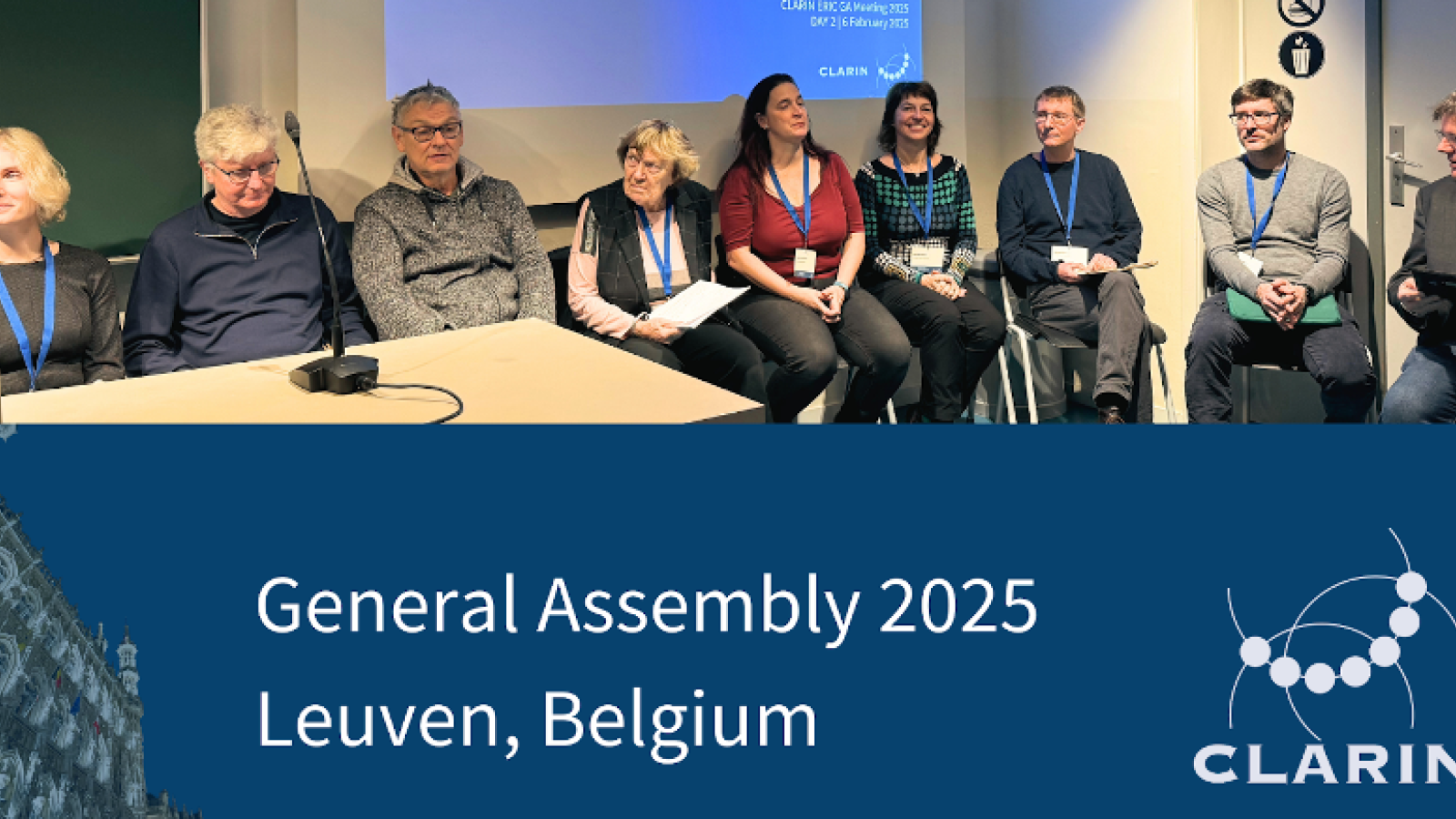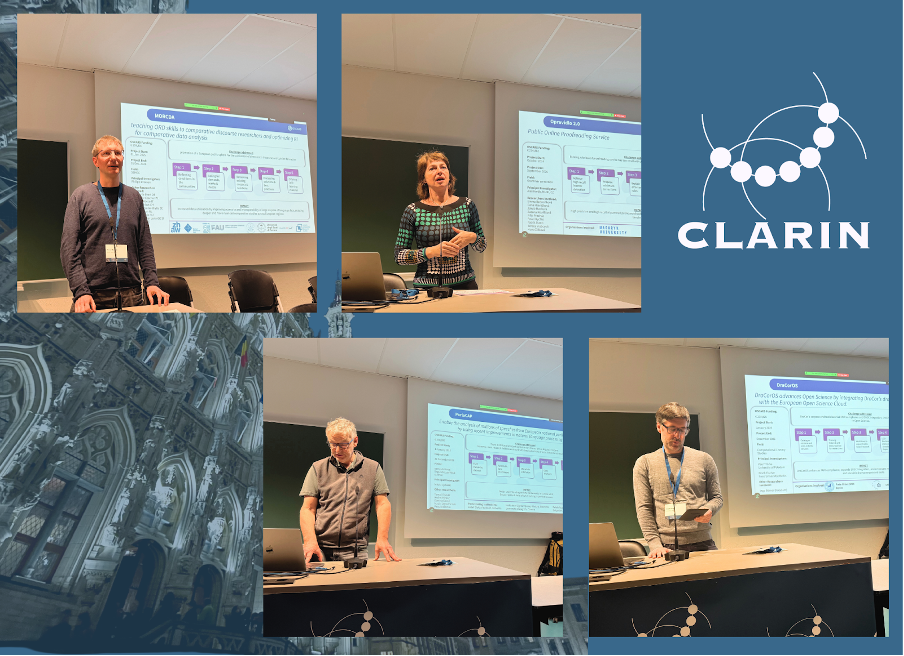
Fostering Synergies at the CLARIN General Assembly in Leuven
On 6 February, the winning proposals of the first OSCARS Open Call for Open Science projects and services dealing with language data were invited to the CLARIN General Assembly (GA) meeting in Leuven, Belgium. In three sessions, four grant winners discussed their project plans, needs and open questions with representatives of CLARIN. Exchanges with the national nodes, the CLARIN ERIC Board of Directors and the representatives of the CLARIN's Central Hub were aimed at maximising synergies with and among the accepted projects, ensuring alignment with the existing SSH Research Infrastructure (RI) landscape, and enabling sustainable absorption of project results and communities into the European Open Science Cloud (EOSC). All projects centre on supporting multilinguality and cross-disciplinarity, and put a strong focus on societal impact and, above all, open science principles and FAIR practices.
About the Projects
DraCorOS: Ingo Börner shared aims to further develop DraCor, a community-driven drama corpora platform. Currently hosting over 3,300 theatre plays in 18 corpora from more than 15 languages, DraCor offers a digital ecosystem of tools, research-driven APIs, programming libraries and Jupyter notebook-based training material. The corpora software is envisioned to be used in a wide range of research disciplines, thereby boosting accessibility and reproducibility.
MORCDA: Discourse analysis offers insights into media discourses and public opinion. Philipp Dreesen presented MORCDA, aimed at bridging gaps between comparative discourse researchers and open research data communities. The project will make extensive language data corpora more accessible and interoperable, facilitating nuanced comparative studies on European languages and contexts.
Opravidlo 2.0: This project, presented by Hana Žižková and Zuzana Nevěřilová, will upgrade a highly successful and open-source rule-based spellchecker with a more robust and efficient one that will be based on Large Language Models (LLMs). The project outcomes will benefit public services and future linguistic research, serve all age groups of native Czechs and accelerate the integration of immigrants to Czechia.
ParlaCAP: Building on CLARIN’s flagship project ParlaMint, ParlaCAP aims to make the existing parliamentary corpora more accessible for additional research communities, specifically the social and political sciences. Tomaz Erjavec explained how the project will enrich the datasets by linking them to leading external knowledge sources on the topic of agenda setting and adding sentiment annotations. ParlaCAP aims to enhance transparency and accountability in legislative discourse across Europe.

Open Science: Bottlenecks and Impact
Following the project presentations, which garnered interest and questions from fellow researchers and GA delegates alike, the OSCARS grant winners and members of the CLARIN national consortia exchanged experiences in a panel discussion. Taking turns, they discussed challenges and bottlenecks, as well as opportunities for CLARIN and the SSH Open Cluster more broadly to maximise the success of the projects throughout their duration and beyond. Sustainability of the project’s outputs, as well as scientific and socio-economic impact, were at the centre of attention, with the importance of research infrastructures (RIs) in supporting Open Science projects stressed throughout the panel.
Collaboration and Synergies
In an internal meeting, CLARIN representatives and the project grantees were able to follow up with a more detailed exchange of ideas for future collaborations within the CLARIN network and among each other. The discussions highlighted the significance of cooperation and community-building, understanding legal considerations, improving data accessibility, and ensuring the sustainability and visibility of language datasets and tools developed in the OSCARS projects within and beyond CLARIN.
Key outcomes
The three sessions proved very valuable for all involved: The project grantees clearly consider RIs as a vehicle to ensure the integration of their results into the European Open Science Cloud (EOSC). CLARIN was able to learn about the researchers' needs, a key takeaway for the OSCARS WP3 (Mentoring grant winning projects) and identify the main areas of collaboration with the grant project winners to ensure the longevity of the projects’ results.